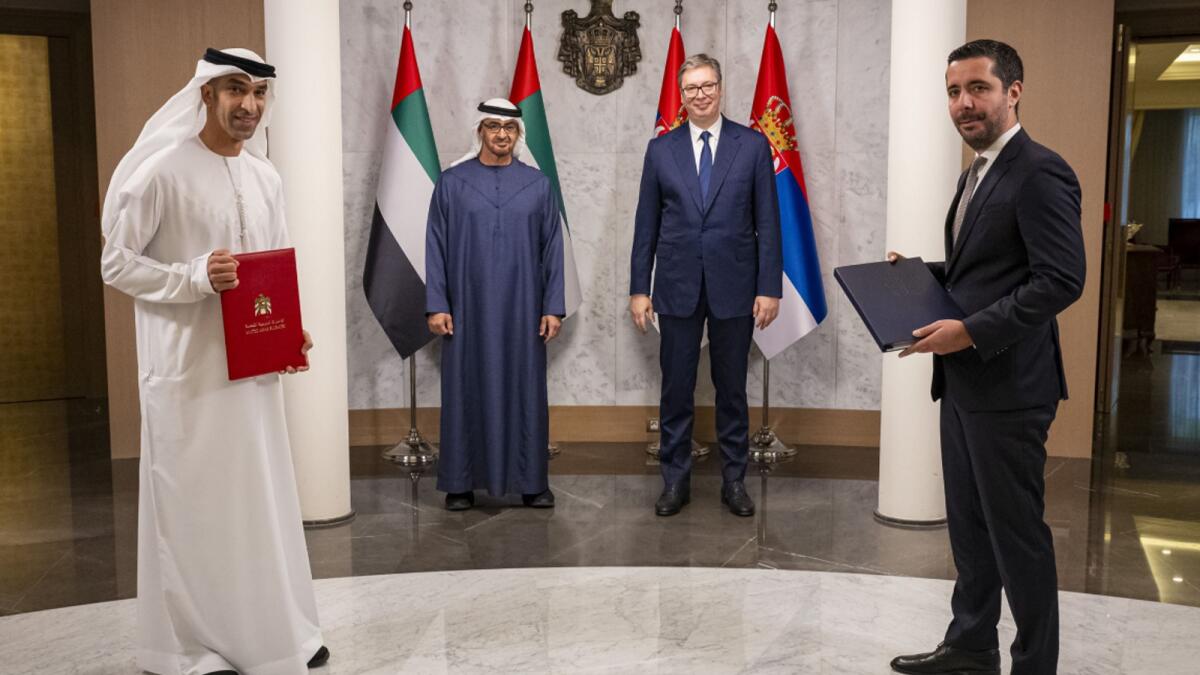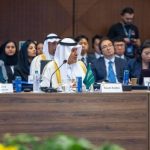The UAE has recently exchanged a Comprehensive Economic Partnership Agreement (CEPA) with Serbia, which is a significant milestone as it is the first agreement under the UAE’s comprehensive economic partnership programme with a country that is not a member of the World Trade Organisation. This agreement includes a tariff reduction and elimination of up to 96 per cent across customs tariff lines, setting it apart from agreements signed with WTO member countries. The initiative aims to boost non-oil trade between the UAE and Serbia, highlighting the potential for economic growth and cooperation between the two friendly nations.
Dr Thani bin Ahmed Al Zeyoudi, Minister of State for Foreign Trade, emphasized the importance of this agreement as it serves as a vital bridge to the Balkans and Southeast Europe, offering significant economic potential. The CEPA reflects the common ambition between the UAE and Serbia to enter a new era of bilateral cooperation and stimulate sustainable growth in both economies. The agreement seeks to enhance trade and investment flows between the two countries, promote private sector partnerships, and facilitate knowledge exchange, opening doors for joint developmental projects in key sectors such as logistics and food security.
According to Dr Al Zeyoudi, the CEPA is expected to boost the UAE’s GDP by $351 million by 2032. The current non-oil bilateral trade between the UAE and Serbia stood at $122.9 million in 2023, with a projected increase to $500 million over the next five years. The UAE is the largest trading partner for Serbia among the Gulf Cooperation Council (GCC) countries, accounting for 55 per cent of Serbia’s trade with Gulf nations. The UAE also holds the position of the third-largest market for Serbian exports in the Middle East and the fourth-largest trading partner for Serbia among Arab countries and Africa.
Foreign Direct Investment (FDI) between the UAE and Serbia has been on the rise, particularly in high-priority sectors such as renewable energy, agriculture, food security, infrastructure, and logistics services. This reflects the growing economic cooperation and partnership between the two countries, showcasing mutual interests in areas of strategic importance. The UAE’s implementation of the Comprehensive Economic Partnership Agreements Programme since 2021 is aligned with its growth strategy to double the total value of foreign trade to Dh4 trillion by 2031, demonstrating a commitment to fostering economic development and diversification.
In conclusion, the CEPA between the UAE and Serbia marks a significant step in strengthening economic ties and fostering cooperation between the two nations. With a focus on reducing tariffs, promoting trade and investment, and enhancing private sector partnerships, this agreement opens up new opportunities for both countries to collaborate and drive sustainable growth in key sectors. As the UAE continues to expand its economic partnership programme and explore new avenues for cooperation with non-WTO member countries, it is poised to leverage the economic potential of emerging markets and create mutually beneficial opportunities for trade and investment.











